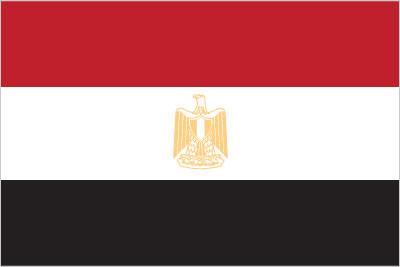About the town » Alexandria, Alexandria, Egypt
- Van Egypte 52
- Egypt 36
- Farao Van Egypte 22
- Antonius 21
- Fayed 19
- Of Egypt 16
- Unknown 12
- Van Rome 11
- Syria 9
- Ruyssenaers 8
Alexandria (in Egyptian Arabic) is the second largest city in Egypt, with a population of 4.1 million, extending about 32 km along the coast of the Mediterranean Sea in the north central part of the country. It is also the largest city lying directly on the Mediterranean coast. Alexandria is Egypt's largest seaport, serving approximately 80% of Egypt's imports and exports. It is an important industrial center because of its natural gas and oil pipelines from Suez. Alexandria is also an important tourist resort. Alexandria was founded around a small pharaonic town c. 331 BC by Alexander the Great. It became an important centre of the Hellenistic civilization and remained the capital of Hellenistic and Roman & Byzantine Egypt for almost one thousand years until the Muslim conquest of Egypt in AD 641, when a new capital was founded at Fustat (later absorbed into Cairo). Hellenistic Alexandria was best known for the Lighthouse of Alexandria (Pharos), one of the Seven Wonders of the Ancient World; its Great Library (the largest in the ancient world; now replaced by a modern one); and the Necropolis, one of the Seven Wonders of the Middle Ages. Ongoing maritime archaeology in the harbor of Alexandria, which began in 1994, is revealing details of Alexandria both before the arrival of Alexander, when a city named Rhacotis existed there, and during the Ptolemaic dynasty. From the late 19th century, Alexandria became a major center of the international shipping industry and one of the most important trading centers in the world, both because it profited from the easy overland connection between the Mediterranean Sea and the Red Sea, and the lucrative trade in Egyptian cotton.
- Alexandria, City of Sydney, New South Wales, Australia
- Alexandria, West Dunbartonshire, Scotland, Great Britain
- Alexandria, Campbell County, Kentucky, United States
- Alexandria, Rapides Parish, Louisiana, United States
- Alexandria, DeKalb County, Tennessee, United States
- Alexandria, City of Alexandria, Virginia, United States
- Alexandria, Calhoun County, Alabama, United States
- Alexandria, Madison County, Indiana, United States
- Alexandria, Douglas County, Minnesota, United States
- Alexandria, Clark County, Missouri, United States
- Alexandria, Thayer County, Nebraska, United States
- Alexandria, Grafton County, New Hampshire, United States
- Alexandria, Huntingdon County, Pennsylvania, United States
- Alexandria, Hanson County, South Dakota, United States

